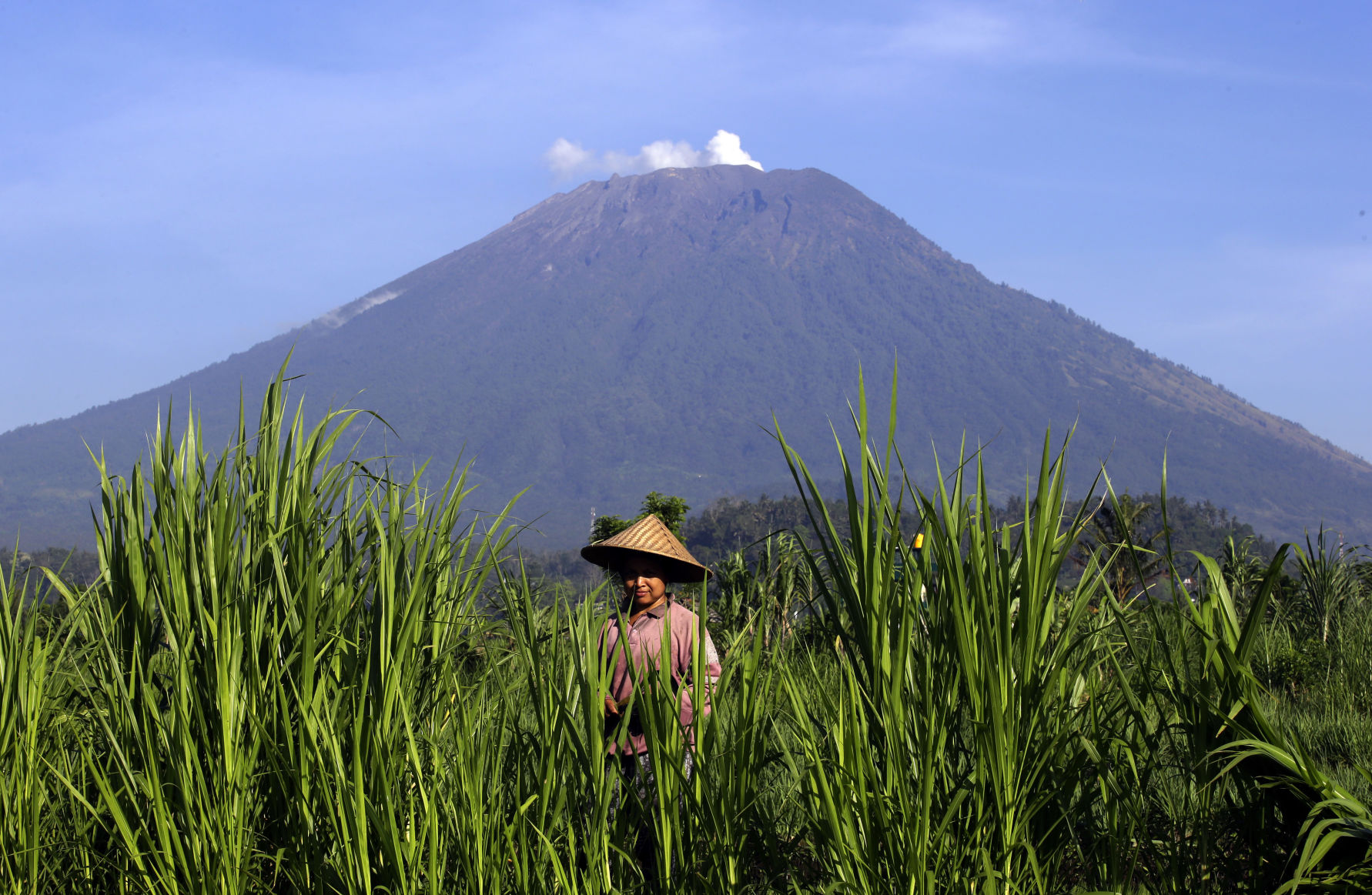JAKARTA, Indonesia (AP) — Indonesian authorities lowered the alert status of Bali’s Mount Agung volcano from the highest level on Sunday, following a significant decrease in activity in recent days. More than 140,000 people fled the area around the mountain
JAKARTA, Indonesia (AP) — Indonesian authorities lowered the alert status of Bali’s Mount Agung volcano from the highest level on Sunday, following a significant decrease in activity in recent days.
More than 140,000 people fled the area around the mountain after its alert status was raised to the highest level on Sept. 22, indicating an eruption may be imminent.
The region has been rattled daily by hundreds of tremors from the volcano. Mount Agung, located about 70 kilometers (45 miles) northeast of Bali’s tourist hotspot of Kuta, last erupted in 1963, killing about 1,100 people.
Kasbani, a government volcanologist who uses just one name, said the decision to downgrade Agung’s status was made after several scientific indicators showed its activities were decreasing drastically. Tremors from the 3,031-meter (9,900-foot) volcano, which indicate rising magma, have reduced in number from about 1,000 a day to fewer than 400.
Kasbani said the radius of the volcano’s danger zone declined from 12 kilometers (7.5 miles) to 7.5 kilometers (4.5 miles) from Agung’s crater.
The government volcano agency said the downgrade means villagers who evacuated but do not live in the new danger zone could return home, but should not venture close to the crater, which was still emitting smoke.
Agung is among more than 120 active volcanoes in Indonesia, which is prone to volcanic eruptions and earthquakes because of its location on the so-called “Ring of Fire” — a series of fault lines stretching from the Western Hemisphere through Japan and Southeast Asia.
Another volcano, Mount Sinabung on Indonesia’s Sumatra island, has been erupting sporadically since 2010, sometimes blasting volcanic ash several kilometers (miles) into the air and forcing more than 30,000 to evacuate their villages.



